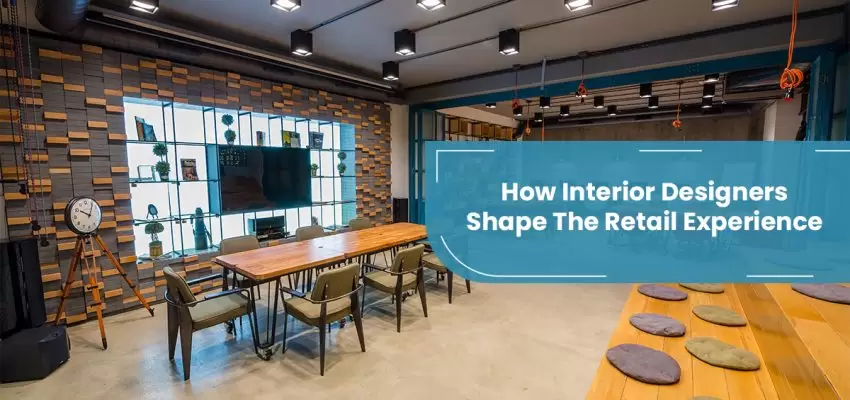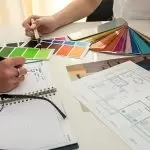Walking into a well-designed retail store is an experience. It’s more than just browsing products; it’s a journey through a carefully curated space that entices, engages, and ultimately, converts. But behind this seemingly effortless experience lies the invisible hand of the interior designer.
Post your Requirement
More Than Just Aesthetics
Sure, interior designers have a keen eye for aesthetics. They understand how color palettes, lighting schemes, and furniture choices can influence mood, perception, and even buying behavior. They’re the masterminds behind those stunning visual displays that draw you in and make you linger.
But their role goes far beyond mere beautification. Interior designers are, in essence, the architects of the retail experience.
They’re the ones who:
-
Optimize Space
They transform raw square footage into efficient, customer-friendly zones. They understand traffic flow, sightlines, and product placement, ensuring a smooth and intuitive shopping journey. No more aimlessly wandering through aisles; a good designer ensures you find what you’re looking for (and maybe even things you didn’t know you wanted).
-
Craft the Brand Story
A store’s design is an extension of its brand. The interior designer takes the brand’s essence – its values, target audience, and overall vibe – and translates it into a physical space. From the moment you step in, you should feel a sense of the brand’s personality, its unique identity coming alive through every design element.
-
Curate the Shopping Experience
It’s not just about displaying products; it’s about creating a narrative. Interior designers use visual merchandising to tell a story, highlight key items, and to guide customers through the buying journey. Strategic product placement, clever use of props, and interactive elements all come together to create a sense of discovery and excitement.
-
Manage the Project
From initial concept sketches to the final finishing touches, interior designers often orchestrate the entire project. They manage budgets, liaise with contractors, and ensure everything runs smoothly, on time, and within budget. They’re the ones pulling the strings behind the scenes, making sure the vision comes to life flawlessly.
The Impact of Good Design
The benefits of a well-designed retail space go beyond aesthetics. Studies have shown that good design can:
- Increase sales: Customers are more likely to spend time and money in a store they find appealing and easy to navigate.
- Enhance brand perception: A well-designed store can strengthen a brand’s image and make it more memorable to customers.
- Improve customer satisfaction: A pleasant and efficient shopping experience leads to happier customers who are more likely to return.
- Boost employee morale: Working in a beautiful and functional space can improve employee morale and productivity.
The Future of Retail Design
The retail landscape is constantly evolving, and interior designers are at the forefront of this change. Sustainability is becoming an increasingly important factor, with designers incorporating eco-friendly materials and energy-efficient solutions into their work. Technology is also playing a bigger role, with interactive displays, virtual reality experiences, and personalized shopping tools becoming more commonplace.
In conclusion, the role of an interior designer in a retail store is far more than just making it look pretty. They are the retail architects of the shopping experience, the invisible hand that shapes how customers interact with a brand. In today’s competitive retail environment, investing in good design is no longer a luxury; it’s a necessity.























Post A Comment